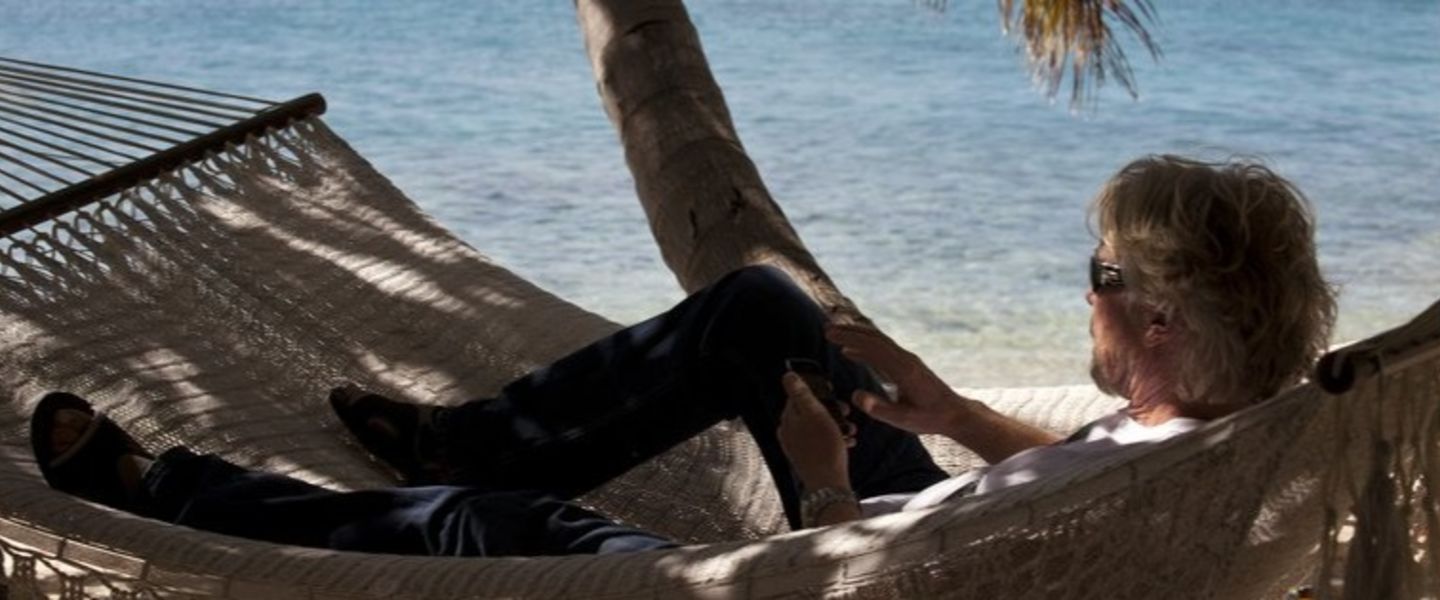Why we’re letting Virgin employees take as much holiday as they want
Flexible working has revolutionised how, where and when we all do our jobs. So, if working nine to five no longer applies, then why should strict annual leave (vacation) policies?
In the past few years, Netflix has become the runaway market leader in the streaming video sector.
One clue as to how they intend to remain there this time comes from a very well-advised and downright courageous initiative they adopted that rewrote the book – or to be more precise, threw it away – on something very near and dear to the hearts of most workers around the world: their annual vacation day entitlement.
I first learned of what Netflix was up to when my daughter Holly read a Daily Telegraph article and immediately forwarded the piece to me with a clearly excited email saying, ‘Dad, check this out. It’s something I have been talking about for a while and I believe it would be a very Virgin thing to do to not track people’s holidays.’ She then went on to say, ‘I have a friend whose company has done the same thing and they’ve apparently experienced a marked upward spike in everything – morale, creativity and productivity have all gone through the roof.’ Needless to say I was instantly intrigued and wanted to learn more.
The Telegraph article talked about the new vacation policy that has been adopted by Netflix, which might actually be more accurately described as being, well, no policy! It’s a little bit like when you read that someone is offering a ‘zero per cent interest rate’. If there’s no interest can it really be called an interest rate?
Anyway, simply stated, the policy-that-isn’t permits all salaried employees to take off whenever they want for as long as they want. There is no need to ask for prior approval and neither the employees themselves nor their managers are asked or expected to keep track of their days away from the office. It is left to the employee alone to decide if and when he or she feels like taking a few hours, a day, a week or a month off, the assumption being that they are only going to do it when they feel a hundred per cent comfortable that they and their team are up to date on every project and that their absence will not in any way damage the business – or, for that matter, their careers!
The Netflix initiative had been driven by a growing groundswell of employees asking about how their new technology-controlled time on the job (working at all kinds of hours at home and/or everywhere they receive a business text or email) could be reconciled with the company’s old-fashioned time-off policy. That is to say, if Netflix was no longer able to accurately track employees’ total time on the job, why should it apply a different and outmoded standard to their time away from it? The company agreed, and as its ‘Reference Guide on our Freedom and Responsibility Culture’ explains, ‘We should focus on what people get done, not on how many hours or days worked. Just as we don’t have a nine-to-five policy, we don’t need a vacation policy.’
It is always interesting to note how often the adjectives ‘smart’ and ‘simple’ describe the cleverest of innovations – well, this is surely one of the simplest and smartest initiatives I have heard of in a long time and I’m delighted to say that we have introduced this same (non) policy at our parent company in both the UK and the US, where vacation policies can be particularly draconian. Assuming it goes as well as expected, we will encourage all our subsidiaries to follow suit, which will be incredibly exciting to watch.
Do you think that all work places should throw away the book on annual leave policies?
-This is an excerpt from my new book: The Virgin Way - available for order now.




